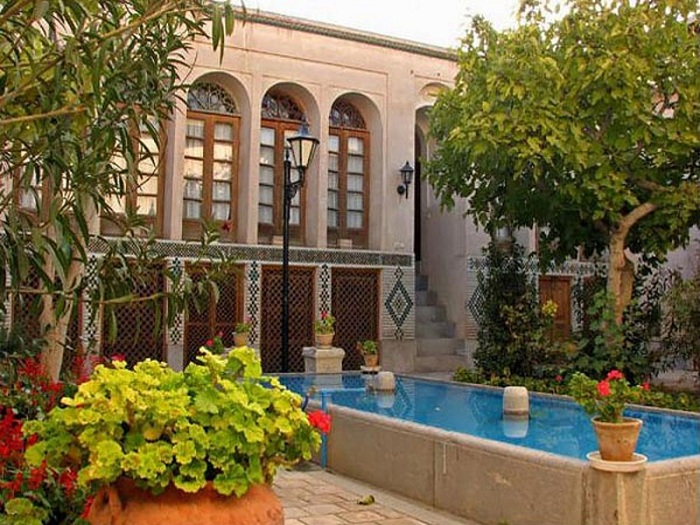Housing production leap plan, the cane of the economy

Examining the role of housing in macroeconomic indicators indicates that the construction of at least 1 million housing units under the name of housing production and supply leap plan, in addition to prosperity to the economy, provides employment for 1 million 875 thousand people per year.
According to the International Iranian Stone Exhibition, the unhealthy conditions of the housing market during the last 7 years have intensified the economic pressure on the country's urban households. For example, the average per square meter of a residential unit belonging to the city of Tehran in 1391 is equal to 3 million and 95 thousand tomans.
Meanwhile, the average price per square meter of a residential unit in the capital has reached 24 million and 100 thousand tomans after 8 years and in 1399 with an astronomical growth of 68%.
Examination of other indicators in the housing sector also indicates the unsatisfactory situation in this area. According to statistics from the Statistics Center, the Housing Access Cost Index, which measures the number of years a household waits to become a landlord, including total annual salary savings, has increased 2.8 times over the past seven years, up from 20 in 2013. It has reached 56 years this year.
While the destructive effects of housing conditions on the economic potential and livelihood of Iranian households are obvious, but these conditions have also affected many parameters of the country's macroeconomy.
* The housing boom provides the conditions for 150 industries to emerge from the recession
According to the report, the housing sector, due to its special nature, can provide the conditions for improving many macroeconomic indicators. In fact, this basic commodity could not be imported and the government in each country must produce and build houses in order to provide housing. Provide. Therefore, activating the production sector in the field of housing will create the ground for other major industries such as cement production, steel production, construction materials mines, carpentry, blacksmithing, furniture making, carpet weaving and others. Studies show that a boom in the housing market as a driving force in the economy will enable the activation of 150 related businesses.
In this regard, Iraj Rahbar, President of the Tehran Mass Builders Association, while welcoming the parliament's plan in the field of construction and supply of housing, said: "Build housing units to solve the problem of sheltering people."
Explaining the strengths of the Housing Production and Supply Leap Project, the head of the Tehran Mass Builders Association stressed: "The construction of at least 1 million housing units in the first 4 years of this project can, in addition to solving the housing problem, lead to economic enterprises leaving "It should stagnate, because the housing sector is one of the drivers of the economy, and many jobs with a positive economic momentum will resume with the housing market booming."
* Employment of 1 million 875 thousand people through the construction of 1 million houses per year
Another feature of the housing construction sector is the discussion of employment resulting from housing production. According to the report of the Research Center of the Islamic Consultative Assembly, the construction of every 100 square meters of residential units directly and indirectly creates employment for 2.5 people per year. An issue that has exacerbated unemployment by reducing housing construction in the Eleventh and Twelfth Governments.
Considering the role of housing in the macroeconomic field, it clarifies the fact that housing construction should be communicated to the executive institutions as a task. In this regard, the Islamic Consultative Assembly, in order to compensate for the 7-year recession of this sector in the country, has brought a plan called the leap in production and housing supply to the court by mentioning two urgencies. According to the details of the plan to jump in production and housing supply, the government is obliged to consider building at least 1 million housing units per year in the first 4 years after the implementation of the plan.
An examination of the employment statistics created by the implementation of the housing production and leap plan reveals another aspect of the strengths of housing construction and supply. In this regard, in order to learn more about this role, we went to Afshin Parvinpour, an expert in the field of economics and housing.
Explaining the employment statistics created by the Housing Production and Supply Leap Plan, Parvinpour said: "Construction of at least 1 million housing units per year, taking into account that the average area for each housing unit in accordance with housing and urban planning methods is 75 meters. "If taken, it will provide employment for 1.875 million people every year."
* The plan to jump in production and housing supply will become the staff of the country's economy
"According to the statistics of the Statistics Center in the field of unemployment," according to the statistics contained in the Statistics Center of the country, 2 million 505 thousand people, equivalent to 9.8% of the active population over 15 years, are classified as unemployed. »
Parvinpour, while stating that if we pay attention to the statistics in the field of unemployment, the role of the plan to jump in production and housing supply will become clearer, stressed: "According to these statistics, if the construction of at least 1 million housing units in "Under the plan to jump into production and provide housing, the number of unemployed people will increase from 2,505,000 to 630,000, and the unemployment rate will drop from 9.8 percent to 2.5 percent."
Examining the statements of experts, it is clear that the plan to jump in production and supply of housing, in addition to owning a large part of the population, can improve macroeconomic indicators and because housing production does not require any imported goods, even under sanctions. Be the staff of the country's economy.










